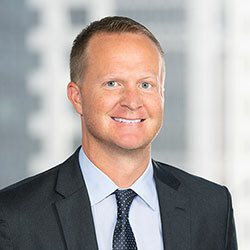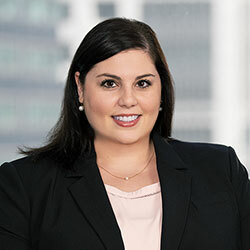In Stelzer v. Nw. Cmty. Hosp., 2023 Ill. App. 220557 (Ill. App. Ct. 2023), a hospital was vindicated when the court found that their consent forms clearly informed patients that the doctors performing surgery were neither employees nor agents of the hospital. A patient required emergency open heart surgery and signed several consent forms that clearly stated that the doctors performing his procedures were not employees of the hospital where the procedure was being performed. Despite this, he sued the hospital under a theory of apparent agency. The court denied his claim and granted the hospital partial summary judgment. Where the consent forms stated multiple times that the doctors were not employees and used bold and all capitalized font to express this fact, the plaintiff could not prevail.
Background Facts
Josef Stelzer went to see Dr. Carl Lang for his routine annual exam. Dr. Lang ran his practice through NCH Medical Group, a separate but related entity of Northwest Community Hospital (NCH). Stelzer's electrocardiogram results returned with an abnormal result. Dr. Lang proceeded to order a stress test for him, which also came back with abnormal results. At this point, Stelzer was referred to Dr. Suhr who performed a catheterization procedure revealing that Stelzer's left anterior descending artery was completely obstructed. This condition is otherwise known as a "Widow Maker" and required immediate open heart surgery to repair the issue.
Before the surgery, Stelzer signed the "Universal Consent" forms provided by NCH. The forms clearly stated that "My physicians, allied professionals are not NCH employees or agents. My care will be managed by physicians who are not employed by or acting as agents of NCH but have privileges at these facilities. My physician may decide to call in consultants who are also not employed by or agents of NCH and who practice in other specialties to provide care for me…… I understand that NCH does not control physician's professional judgment. My care may be managed by allied health professionals such as nurse anesthetists, physician assistants, advanced practice nurses and nurse midwives who are not employees or agents of NCH. I understand that my treating physicians or allied health professionals may not participate in the same insurance plans as NCH and that I will receive a separate bill for these services." Stelzer conceded that he had signed the consent forms and had no questions at the time of the signing.
Dr. David DeBoer performed the coronary artery bypass grafting surgery at NCH. During the procedure, Dr. Kathryn Podgorny used a diagnostic procedure in which a probe was sent down Stelzer's esophagus to take photos of his heart. After the surgery Stelzer developed complications and was diagnosed with an esophageal perforation. It was repaired, but he developed a septic infection and had to spend an additional eight weeks in the hospital as a result.
Stelzer brought a claim against Dr. DeBoer, Dr. Podgorney and physician assistant Christine Gilbert who handled his post-operative care. He also sued NCH for vicarious liability as to the work of Dr. DeBoer, Dr. Podgorny and PA Gilbert. Both parties agree that Dr. DeBoer and DR. Podgorny were not NCH employees. Both belonged to independent physician groups that contracted to provide services to NCH. PA Gilbert was a NCH employee at the time of the incident.
NCH filed a motion for partial summary judgment denying that Dr.DeBoer and Dr. Podgorny were its actual or apparent agents. It pointed to the consent form signed by Stelzer which clearly stated that it could not be held liable for negligent acts of physicians who were not agents or employees of NCH. That form also clearly stated that the doctors performing his open heart surgery were not employees or agents of NCH. The court granted NCH's motion for partial summary judgment. It found that the consent forms placed him on notice of his doctors' independent contractor status and that he could therefore, not hold NCH vicariously liable. On appeal, Stelzer claims that the trial court erred in its decision because the consent forms were vague, misleading and confusing.
Were Stelzer's Doctors Agents of NCH?
The doctrine of apparent authority states that a principal is bound by the actual authority it provides to another and also "by the authority it appears to give." Gilbert v. Sycamore Municipal Hospital, 156 Ill.2d 511, 523 (1993). For NCH to be liable under the doctrine of apparent authority, Stelzer would need to show:
- The hospital, or its agent, acted in a manner that would lead a reasonable person to conclude that the individual who was alleged to be negligent was an employee or agent of the hospital.
- Where the acts of the agent create the appearance of authority, the plaintiff must also prove that the hospital had knowledge of and acquiesced in them; and
- The plaintiff acted in reliance upon the conduct of the hospital or its agent, consistent with ordinary care and prudence. Gilbert 156, Ill.2d at 525.
Further, if the hospital holds itself out as a care provider without alerting the patient that the care is provided by independent contractors, apparent authority may be present. However, if the patient "knows or should have known, that the treating physician is an independent contractor, then the hospital will not be liable." Schroeder v. Northwest Community Hospital, 371 Ill. App.3d 584, 591 (2006).
Here Stelzer acknowledges that he signed the consent form and that it states that the doctors treating him are not employed by NCH. Despite this, he continues to argue that the consent form was confusing and misleading. He points to the case of Williams v. Tiessier, 2019 IL App. (5th) 180046 as a comparable case with a consent form similar to the one in question here. Williams involved a suit brought by a woman against her obstetrician for alleged negligence during the birth of her baby. Like Stelzer, she also sued the hospital under the apparent agency theory. The court found the two cases distinguishable, however. Unlike the consent forms at issue in Williams, the language regarding the independent contractor status of the plaintiff's doctors in this case was not buried in the middle of a long document. Instead, it was contained in the second paragraph which states in bold, capital letters "MY PHYSICIANS ARE NOT NCH EMPLOYEES/AGENTS." In addition, under the capitalized, bolded heading the consent form states, "My care will be managed by physicians who are not employed by or acting as agents of NCH but have privileges at these facilities.”
Stelzer signed two consent forms for the hospital prior to his surgery and both contained this identical language that appeared in the same format. Additionally, Stelzer signed a surgical consent form which expressly named Dr. DeBoer which stated, "The above physician, the anesthesiologist, if applicable, their assistants, and their physician groups, are not employees or agents of the hospital, but are independent contractors.” Based on these facts, the court here found that the consent forms at issue in the present case are clearly distinguishable from those at issue in Williams.
The court found the instruction of James v. Ingalls Memorial Hospital, 299 Ill.App.3d 627 (1998) more analogous to those in the case at hand. In James, the consent forms clearly stated that the physicians on staff were neither employees not agents of the hospital. It found that the language in the consent form was sufficient to defeat any claim by the plaintiff of apparent agency. In addition, the language was printed in bold, capitalized letters and located directly above the signature line much like the language in the consent form signed by Stelzer. Here the consent forms signed by Stelzer clearly and unequivocally put him on notice that his doctors were not employees or agents of the hospital.
Was the Hospital Required to Explain the Consent Forms to the Plaintiff?
Stelzer also contends that a hospital representative should have explained the consent form to him as well as the definition of what constitutes an agent or independent contractor. Evidence to the contrary, however, shows that he signed the contract directly under a phrase that said, "I acknowledge that I have read and undergoing the foregoing accept its terms." Looking through the lens of the reasonable person standard the court in this case found that the language in the consent form was clearly stated and sufficient to notify him that his doctors were in fact independent contractors and not NCH employees.
Was the Language in the Consent Form Misleading?
Stelzer argues that the consent forms were "misleading at best, or false at worst." He points to the fact that the consent forms say that none of the physicians at NCH are employed by NCH, when in fact Dr. Parsons, the doctor that repaired Stelzer's esophagus, testified that he was "technically" employed by NCH. A statement that NCH disputed and clarified by stating that Dr. Parson is employed by NCH Medical Group, which is a related but separate entity.
Stelzer made a similar argument as to physicians assistants. He claims that the consent forms are misleading and false because they state physicians assistants are not employed by NCH, but PA Gilbert who tended to Stelzer after his surgery was in fact employed by NCH.
The court reasoned that even if the consent forms were misleading based on the fact that it stated that all physicians were not employees of NCH, that does not change the fact that Stelzer signed a consent form with clear, unambiguous language that put him on notice that the doctors who performed his surgery were not employees of NCH.
Stelzer does not argue that he was somehow misled into signing the consent form based on the employment status of Dr. Parsons or PA Gilbert, two health care providers he did not even meet until after signing the consent forms at issue here.
Finally, the fact that NCH marketed itself as "a top hospital in both the Chicago metropolitan area and the State of Illinois with a medical staff of over 1,000 physicians" does not change the fact that the consent forms clearly stated that the physicians were not NCH employees. Although the advertisements could have been more clear, they are counteracted by the clarity in the consent forms themselves as well as the signs in the reception areas that stated "NCH's medical staff are independent practitioners and not physicians on NCH's medical staff." Nevertheless, an unambiguous, signed consent form supersedes any potentially misleading advertising.
Therefore, on appeal the court agreed with the trial court's decision and affirmed the grant of summary judgment in favor of NCH.


